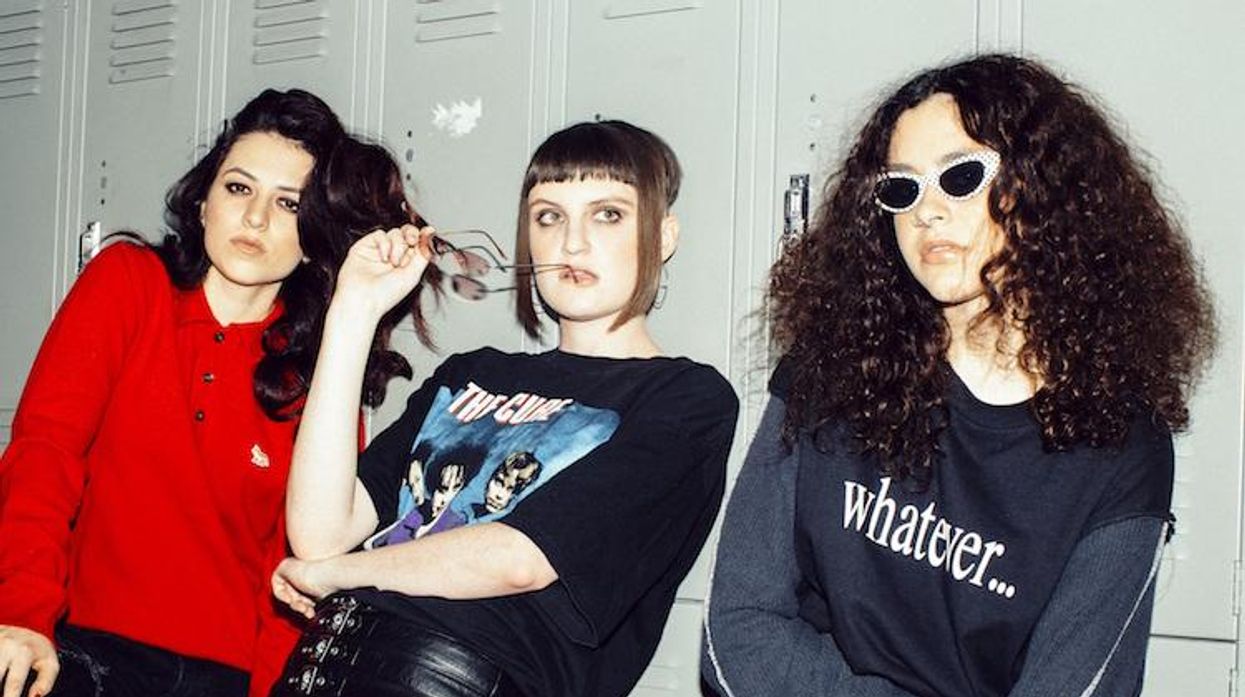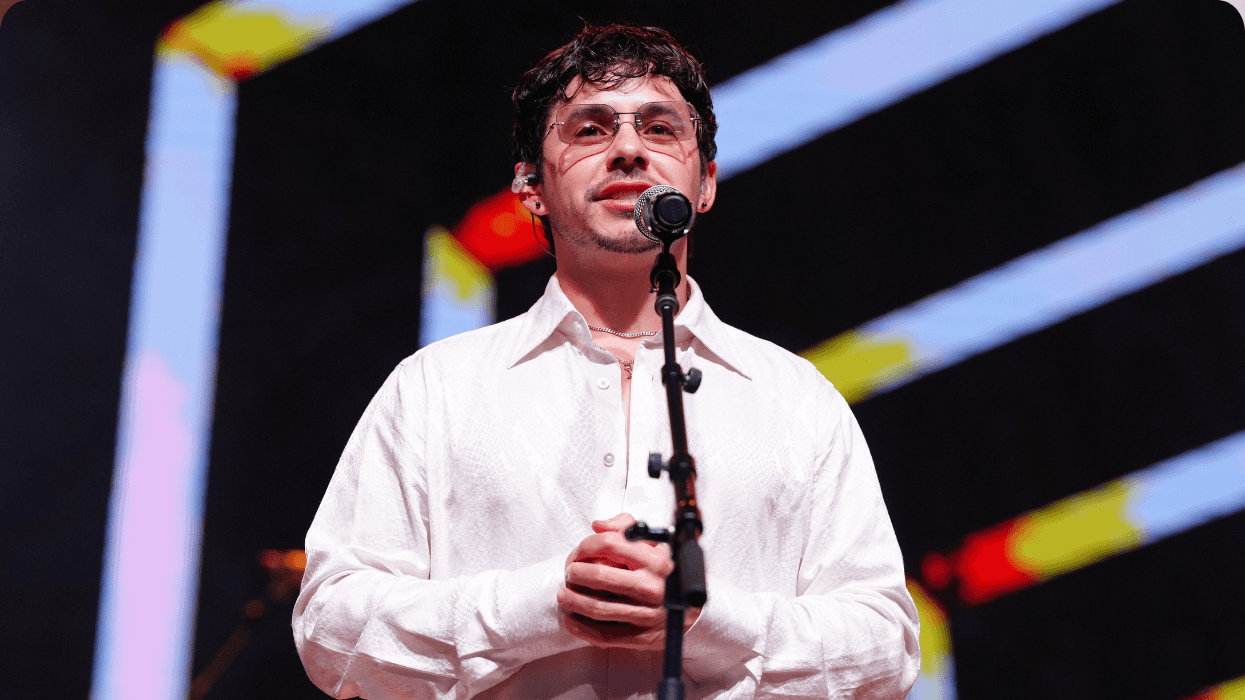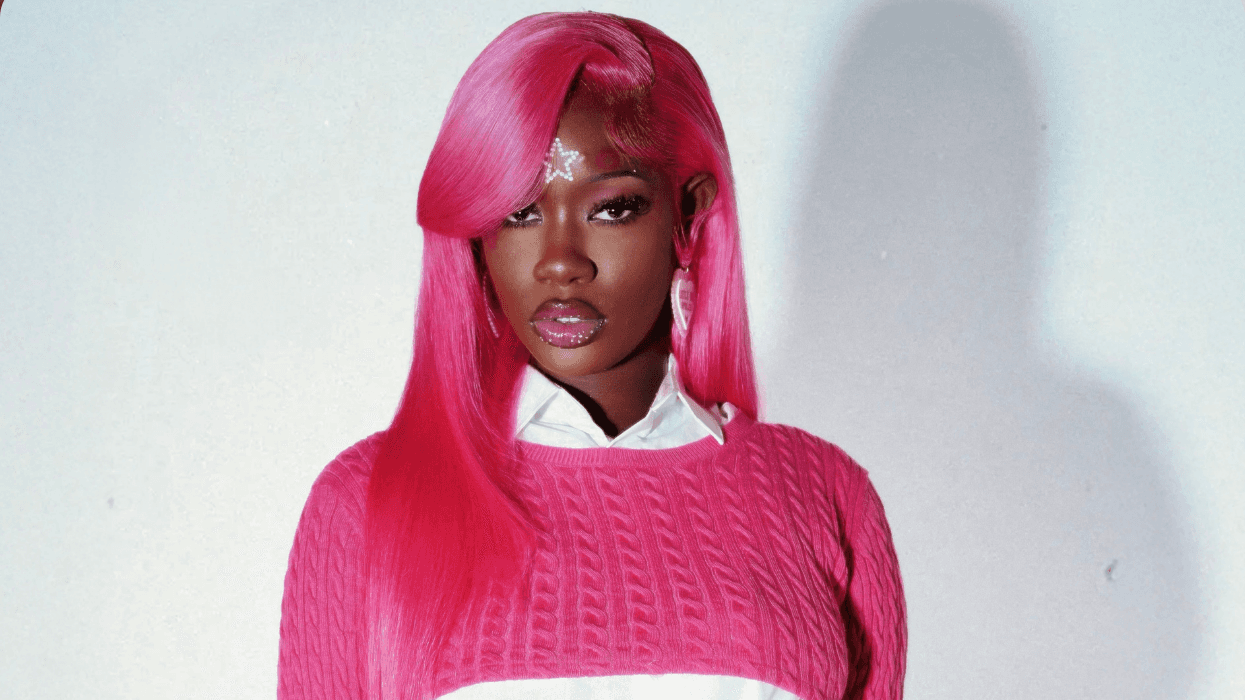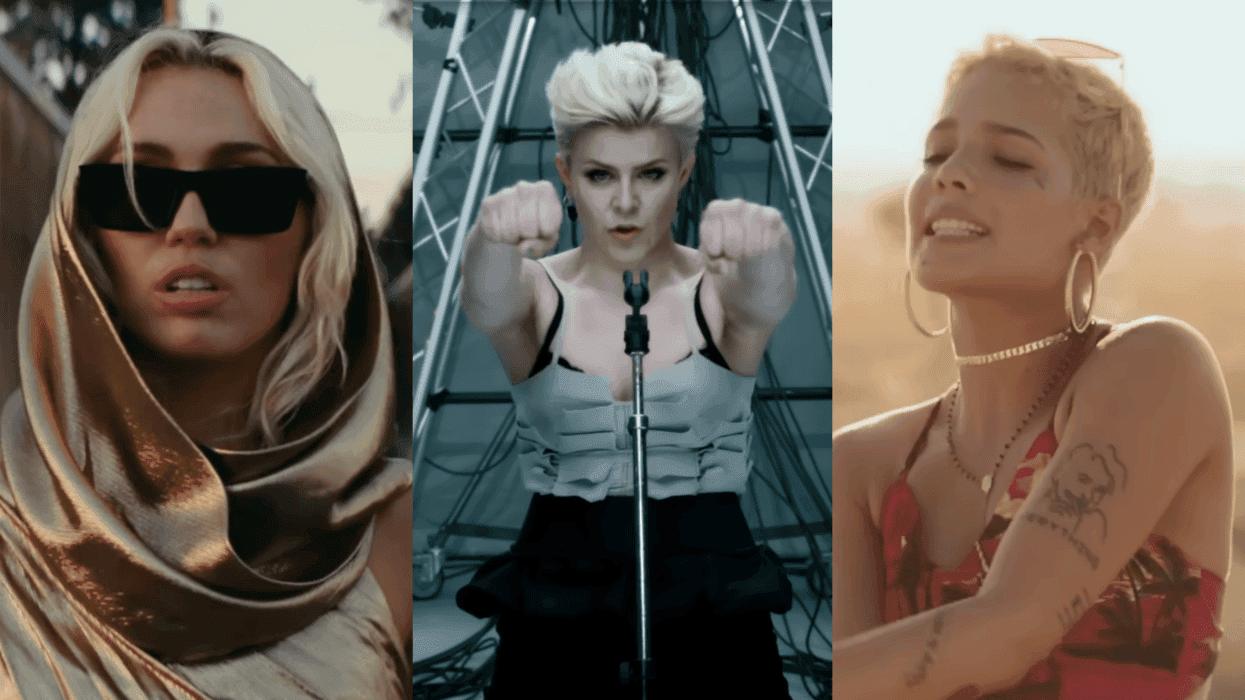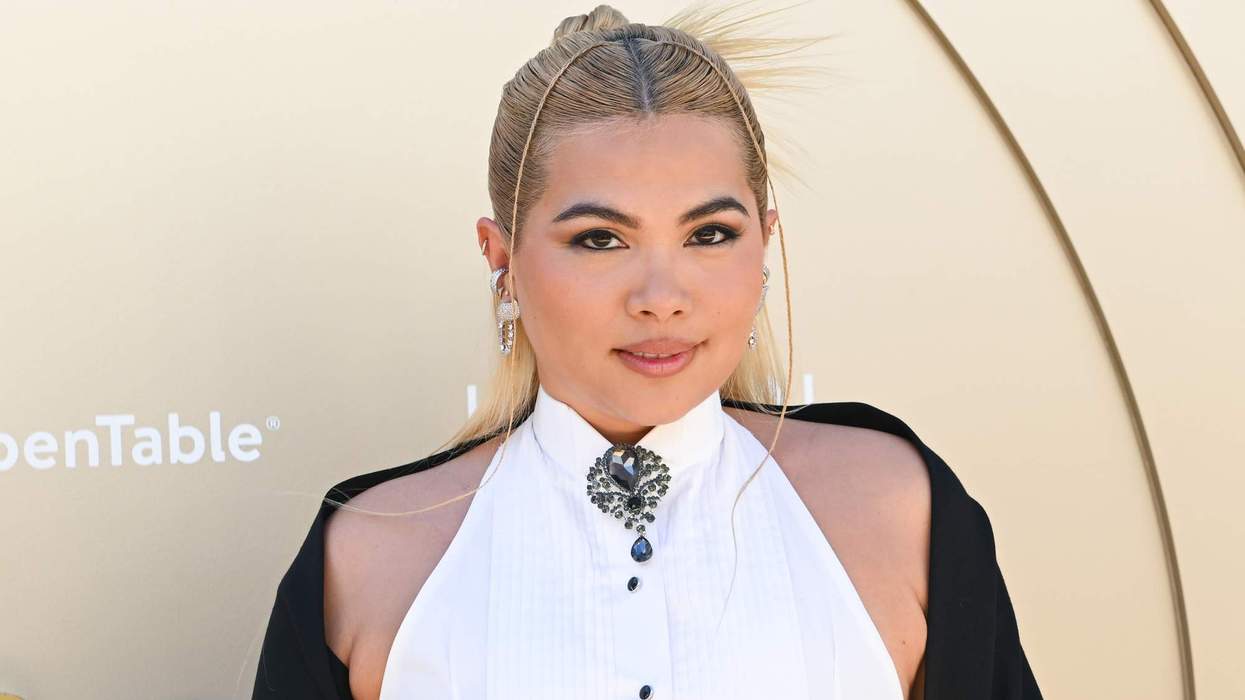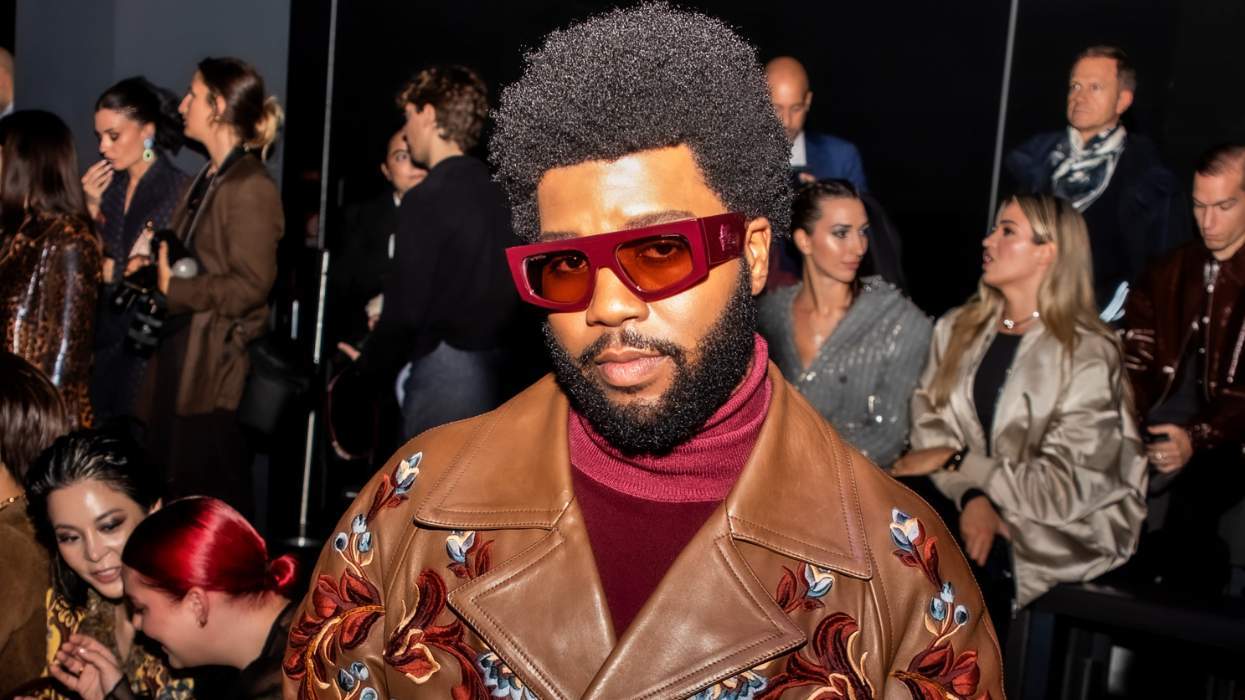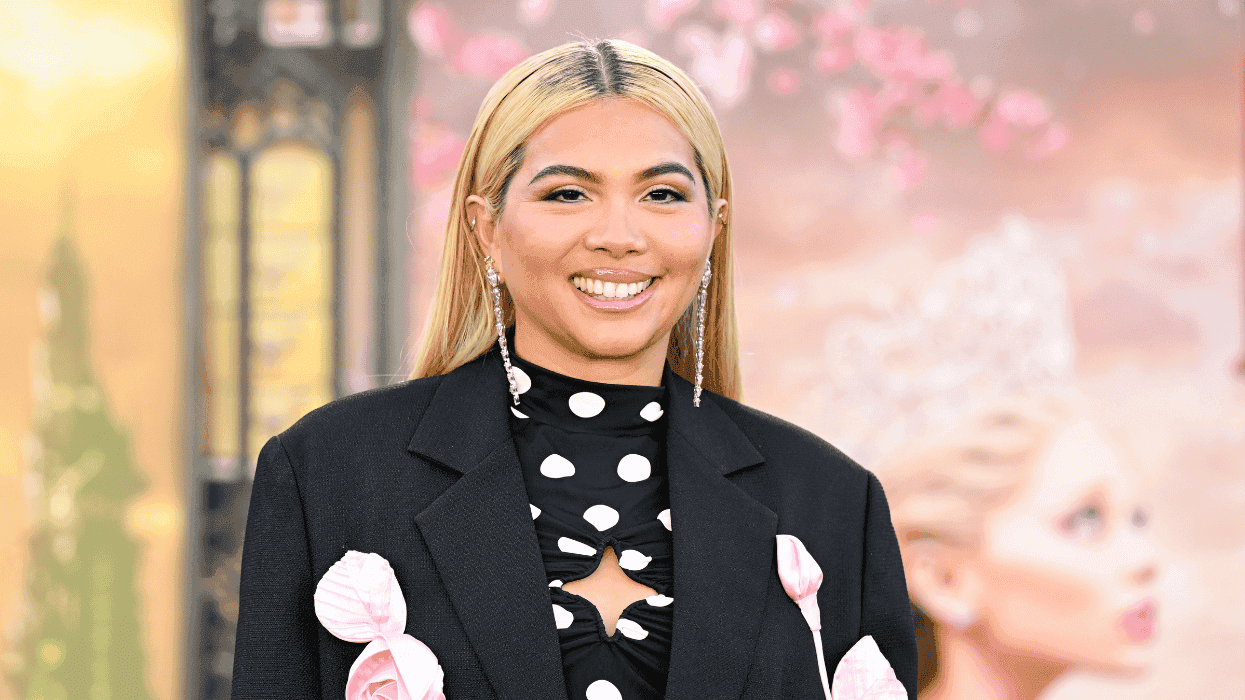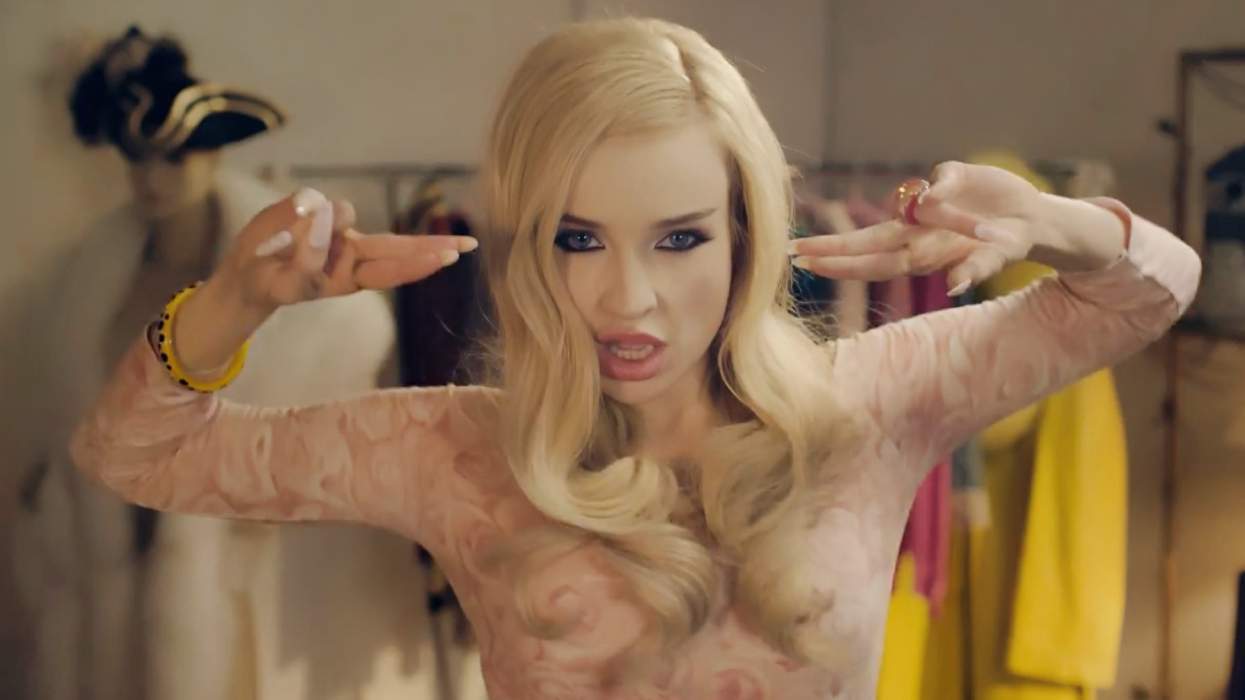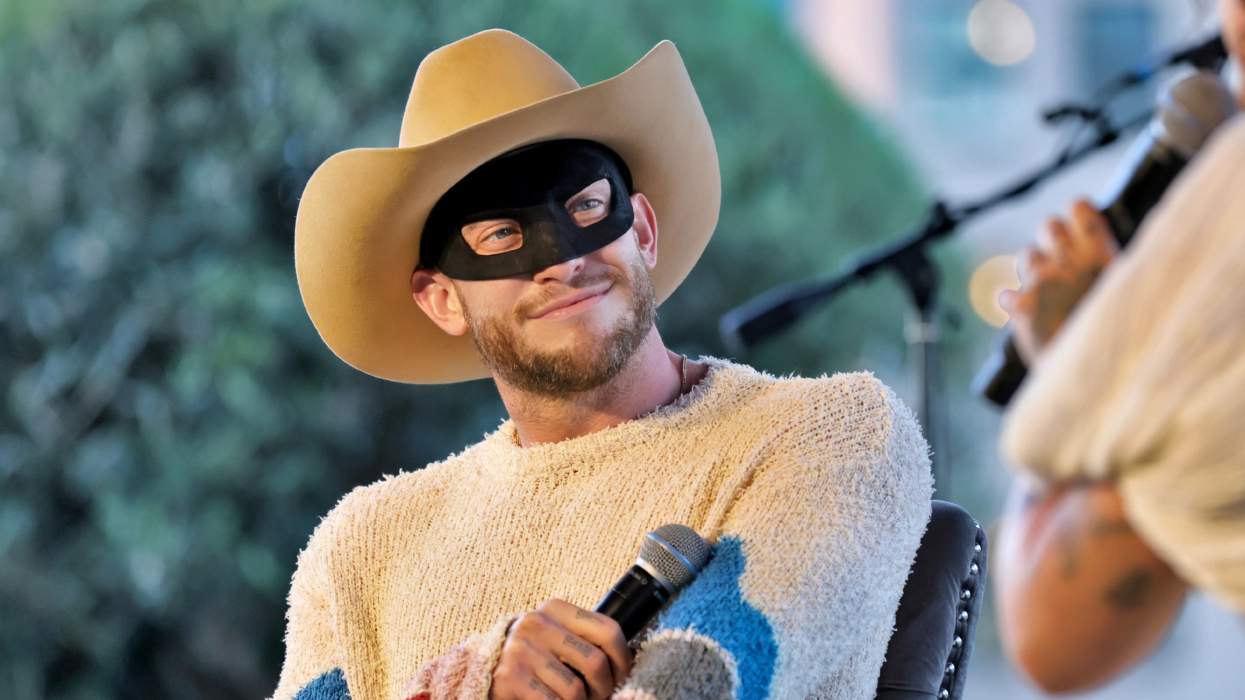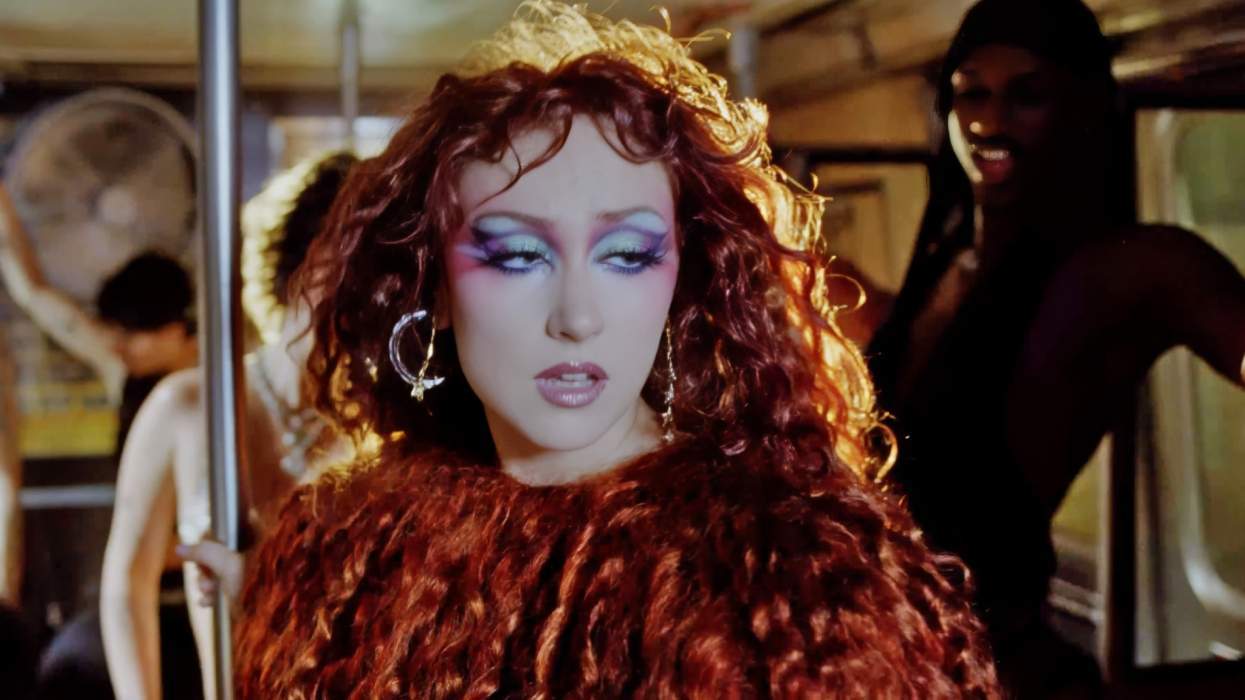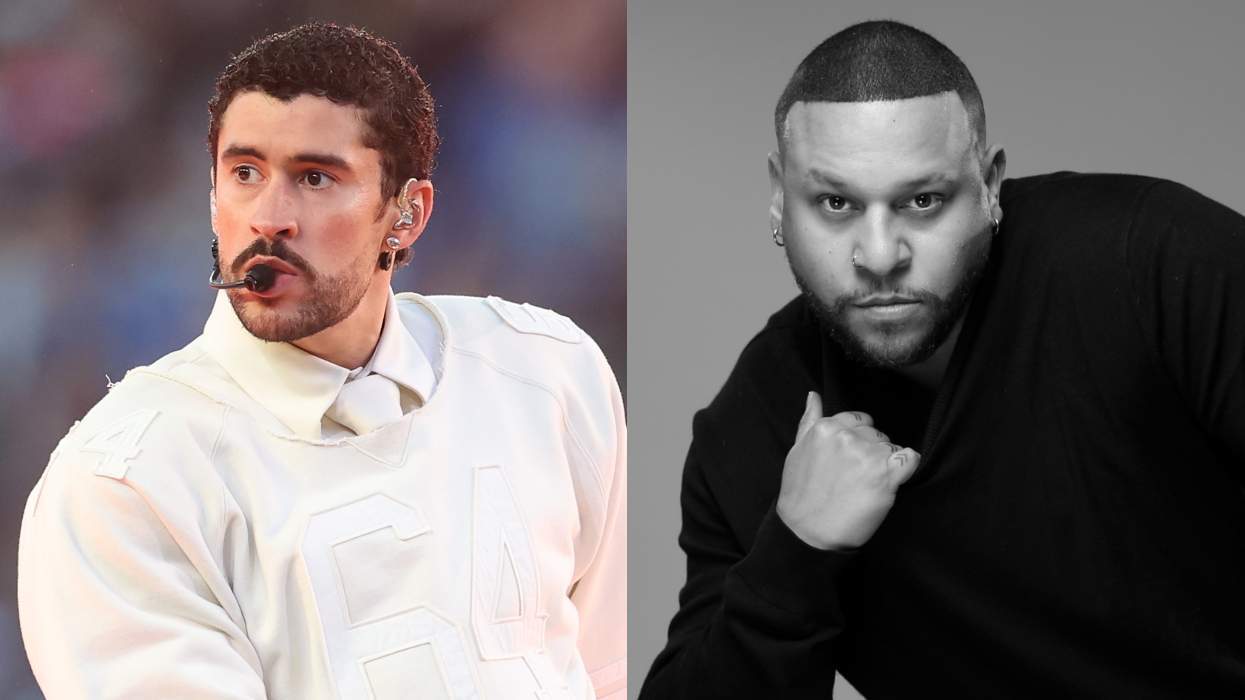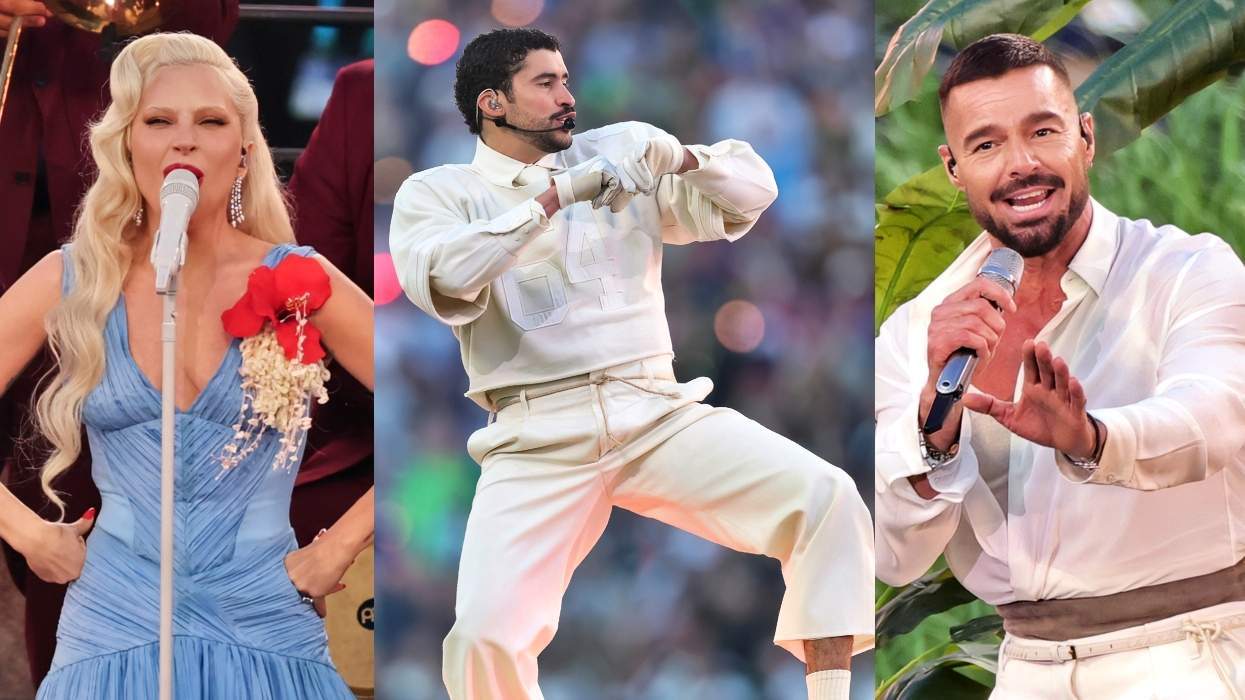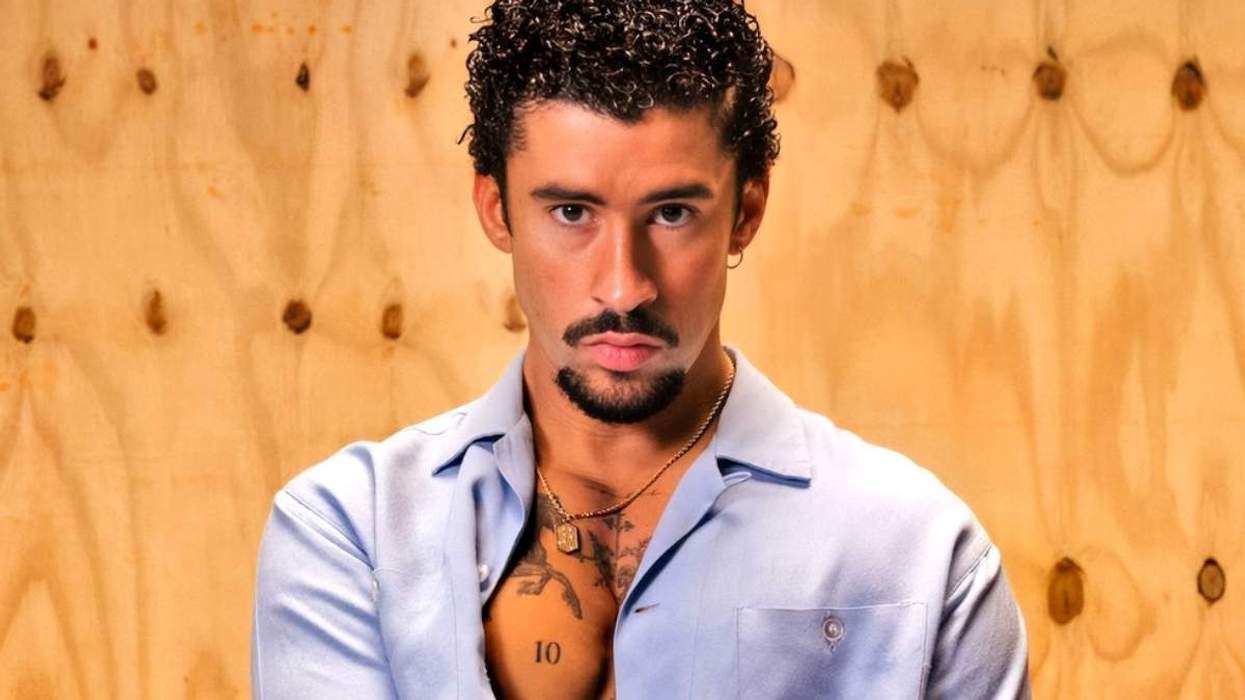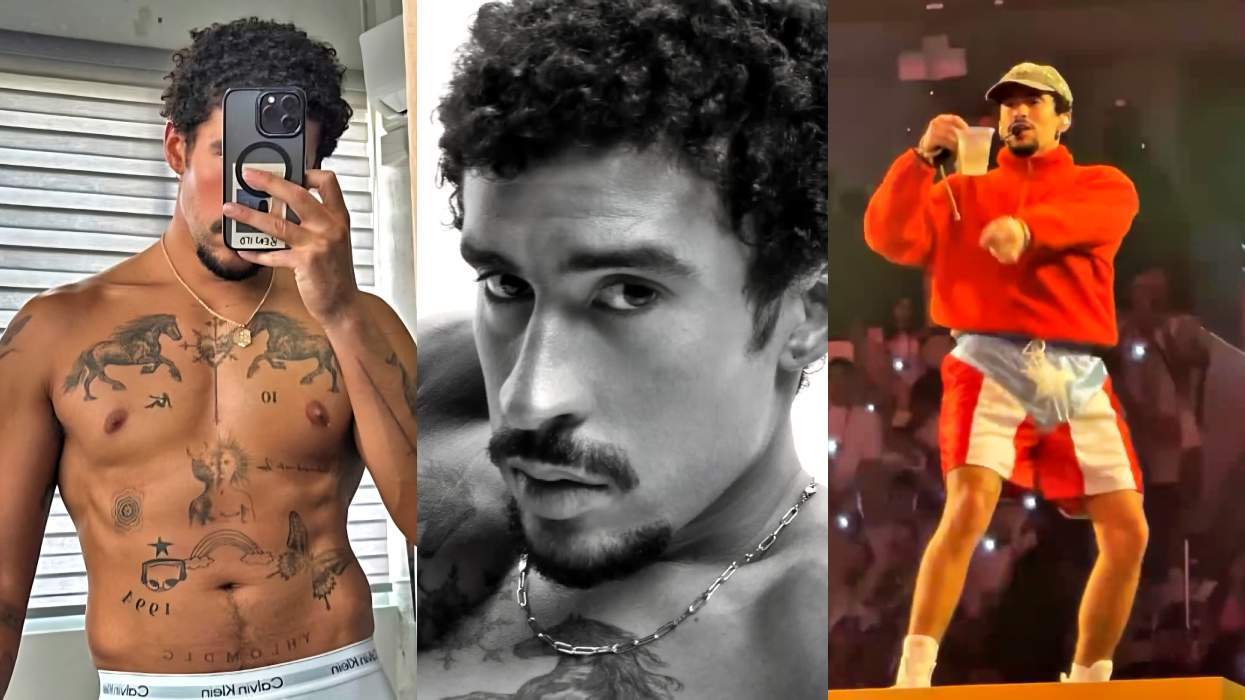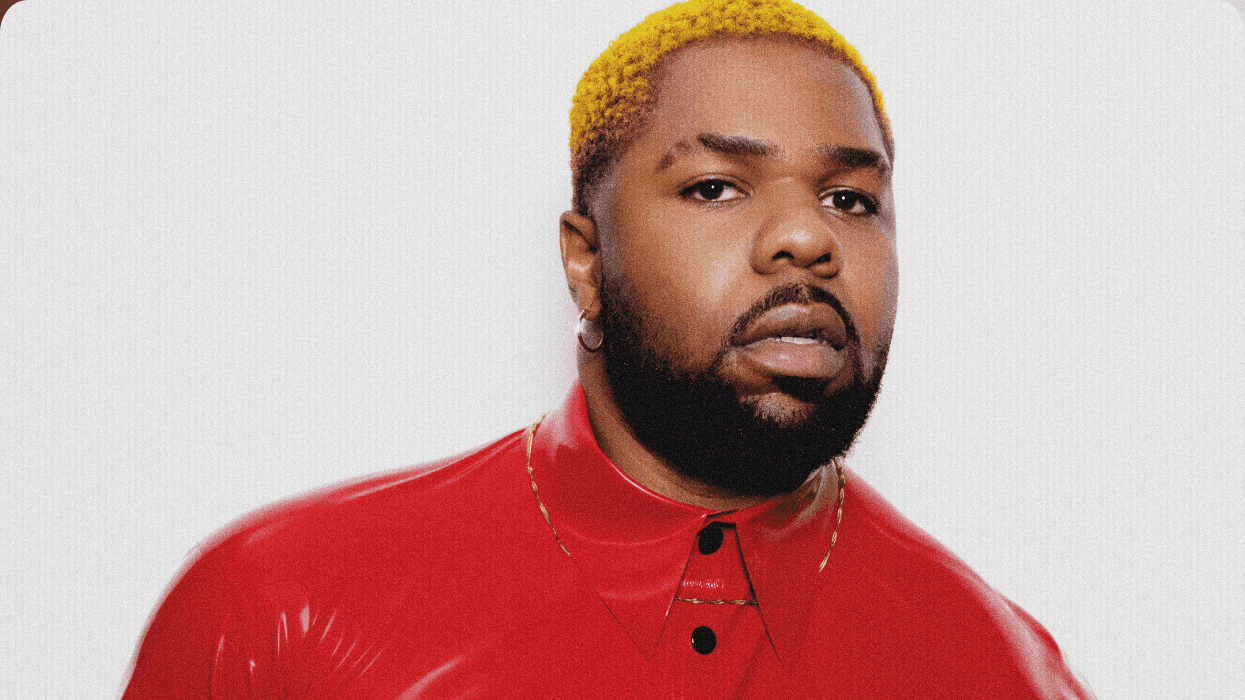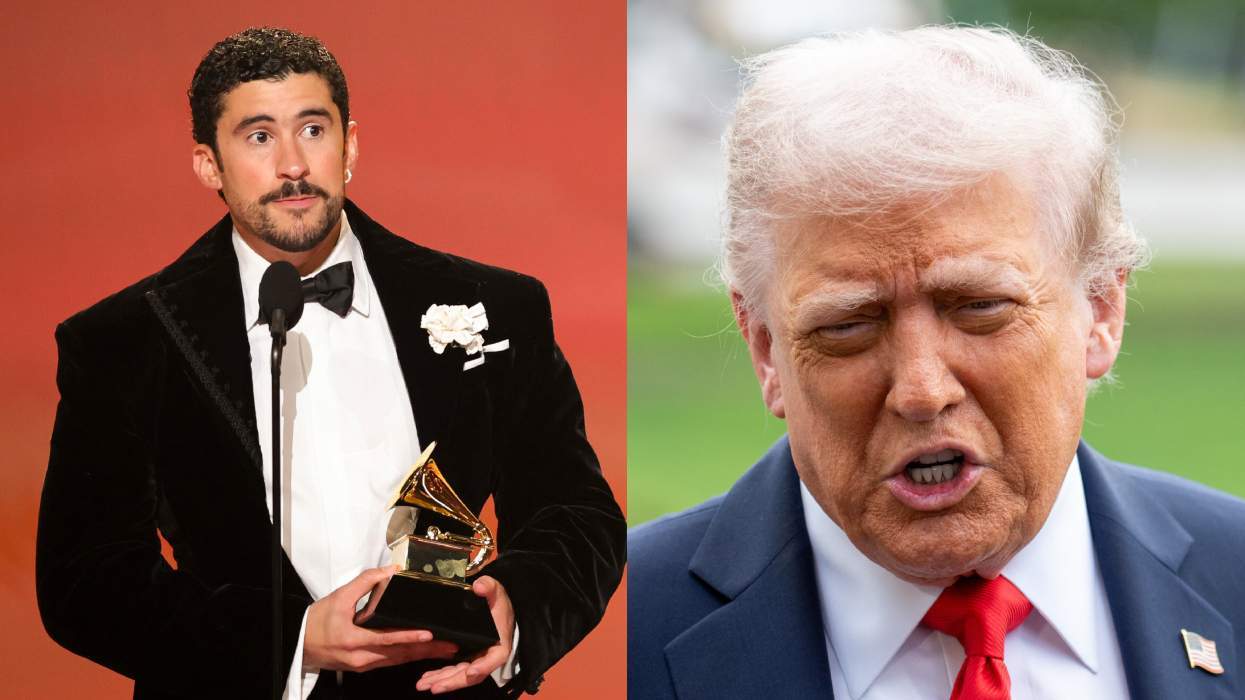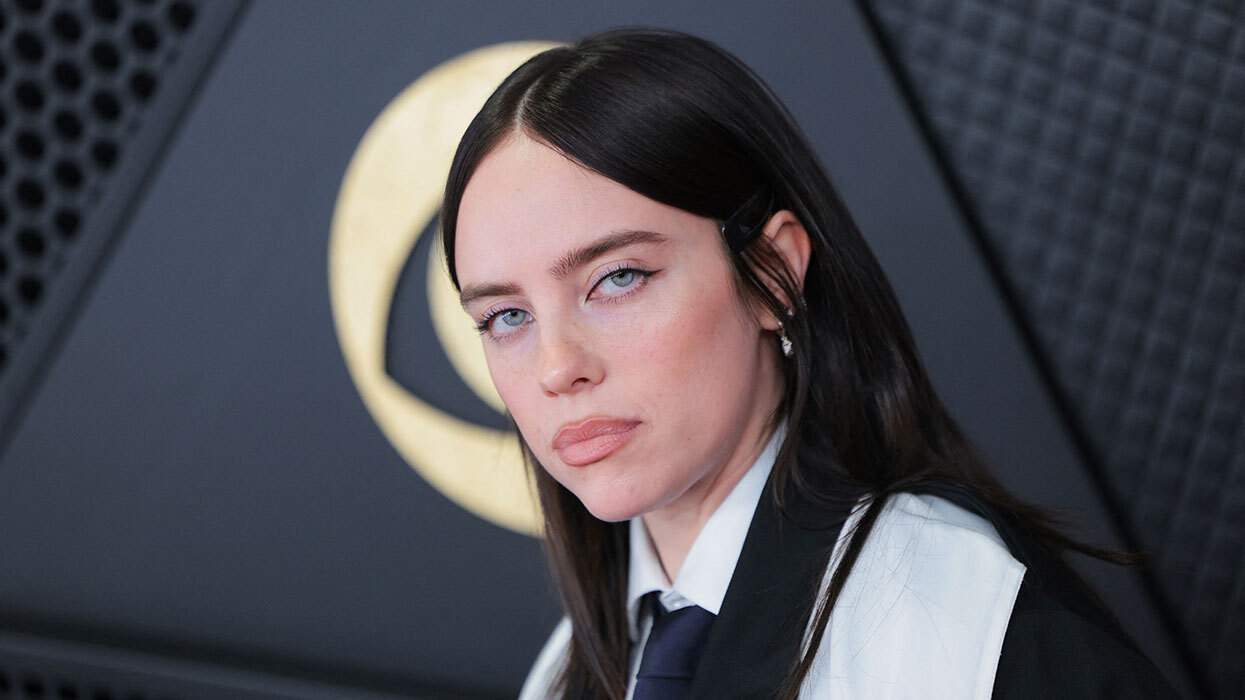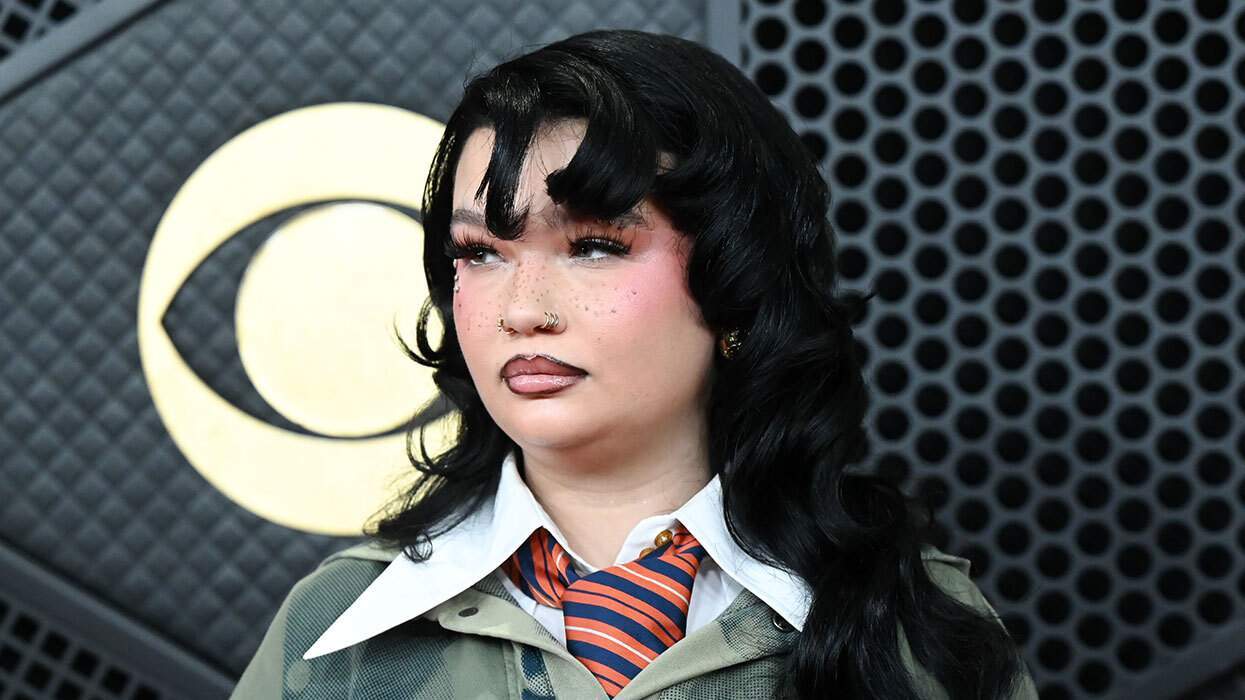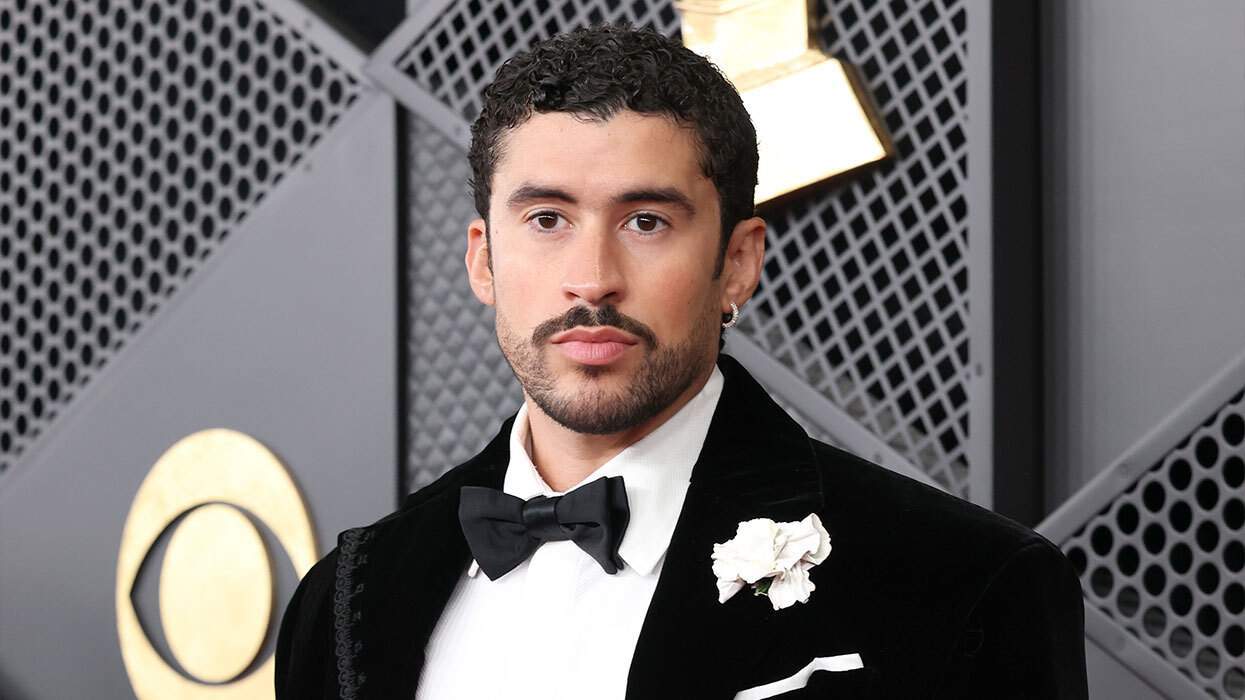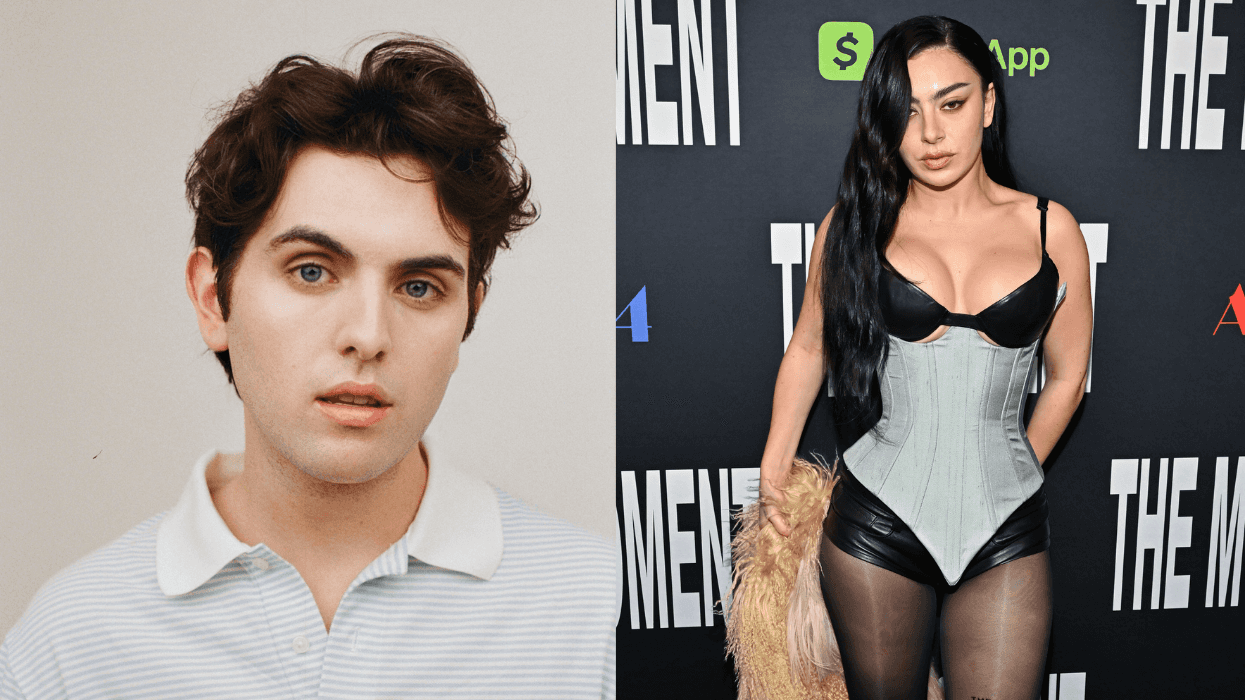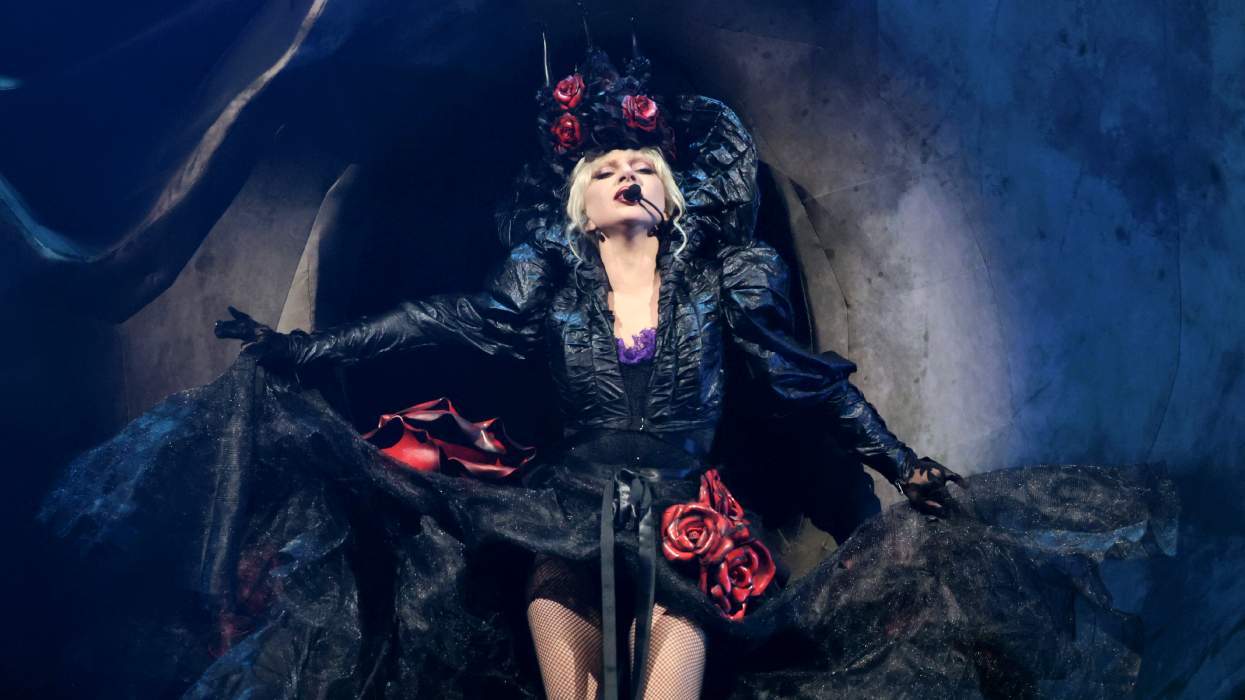Los Angeles-based girl band MUNA makes you feel like you're cruising along the Pacific Coast Highway, dressed head-to-toe in leather and riding a motorcycle. The group is comprised of three queer ladies: singer Katie Gavin (23) and guitarists Naomi McPherson (23) and Josette Maskin (22). Their songs touch on topics we all relate to: heartbreak, gender identity, and rejection, sung with an attitude that will hook you instantly.
We chatted with the ladies shortly after the release of their video for The Loudspeaker.
Out: Congratulations on the new music video for Loudspeaker! What were some of the inspirations behind it?
Katie Gavin: The dog sequence was kind of inspired by Mars from Holy Mountain (1973) and her amazing poodles. I would say the aesthetic was at least partially inspired by club kids and the larger GHE20G0TH1K community. We were also just inspired by our friends and fellow creatives in Los Angeles, some of whom were in the video.
Naomi McPherson: I'm obsessed with this documentary on punk called The Decline of Western Civilization (1981), so a lot of what we try to channel comes from there. Obviously, nostalgia just takes the best parts of the past--or maybe the parts that never existed--but I really love the idea of a revolutionary, music-centric, and politically concerned community. I hope we can contribute to a contemporary materialization of that.
Josette Maskin: We think that there needs to be more badass portrayals of women in popular culture. We wanted the video to be full of that.
How did you come together as a band?
KG: We met in school and became friends before we started the band. I was just getting into music production and Naomi and Jo discovered they liked each other's style of guitar playing one night before we went out, and the first time we met to jam we pretty much wrote a full song.
NM: We're all trained musicians with lifelong backgrounds in music, but this project has just helped us really hone our skills--whether in production or just musicianship in general. It's been an extremely collaborative and fully engaging process since the beginning.
JM: The formation of the group felt very natural. We are all best friends and playing together wasn't a difficult process. I think we work well as a group because the priority has and always will be the friendship we share.
What does MUNA signify for you?
KG: MUNA signifies a feminine planet: inclusive, peaceful, creative.
NM: I think to me it signifies the embracement of a feminine energy--all aspects of it. It's hard to grow up as a girl, especially a girl of color. Being in this band has really helped me embrace all aspects and complexities within my femininity. I hope we can inspire others to do that as well, regardless of gender identity.
JM: MUNA signifies a safe place where all are welcomed.
You call yourselves a "dark-pop" band. Can you expain why?
KG: We use the term dark-pop because we are a pop band that deals with darker topics. We don't want to shy away from themes or experiences that are difficult to fit inside a pop song.
Some listeners say your music has an 80s vibe to it. What are some of your musical influences?
KG: We do think the 80s thing is pretty undeniable. We're really influenced by bands like the Cure and Blue Nile.
NM: I mean, the 80s were sort of the decade that helped shape the way we see and hear pop music today--synths, the onset of club music, programmed drum sounds--so all contemporary pop is 80s influenced, as far as I know. I've just always been obsessed with those huge drum sounds. I love that shit. I think we definitely channel the 80s and 90s quite a bit. We all love synth-pop and alt bands like the Cocteau Twins and trip-hop but we all really love R&B as well. I think we channel all of those things, whether conscious of it or not. There's so much good music out there.
We need more queer female bands out there. Does this need shape your songwriting process?
KG: Being queer and female-identified only shapes our songwriting process in the way that we write based on experiences, and we share the experience of being queer females.
You are going on your first tour with Grouplove soon. What sparked this collaboration?
KG: This tour was an unexpected blessing. We're pretty sure Grouplove just reached out to our management cause they like what we've put out, and we were happy to jump on with them. We're also playing with Dilly Dally, which we're very excited about.
NM: Their energy is just super rad. It's going to be a challenge opening for them--especially playing right after Dilly Dally. We're going to try to bring the energy as much as we can.
JM: We are so so excited to tour with a band that has been around for a long time and has the reputation of having such a bad ass live show.
Why choose Europe for a first headline show?
KG: Well, it's not our first headline show ever! We've played one in L.A. and one in N.Y. But it's our first headlining show in London. And we're happy it's up next. London has been onto us and vocal about their support for us before any city in the U.S.
NM: Yeah, it's important to us to play in the U.K. as much as possible. We owe them that. They've supported us since the very, very beginning.
When's the album coming out?
KG: Early 2017, we hope!
Besides the new highly anticipated album, anything else in store for us? Music or otherwise?
KG: We're going to be designing a lot of merch that we are excited about for this upcoming tour, so keep your eyes peeled for that.
Michael Valinsky is a writer based in New York and Paris. He received his BA in poetics and praxis at New York University. His work has been published on Lambda Literary, Kirkus Reviews magazine, Artsy, Surface magazine, eBay and The WILD Magazine. He is the author of .TXT, Zurich: 89plus/LUMA publications, 2014. Michael is now the editorial assistant at Kirkus Reviews.


